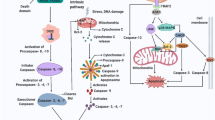Abstract.
Changes in the parasitaemia and the characteristics of parasitic infection for three species of rodent Plasmodium (P. chabaudi chabaudi, P. vinckei petteri and P. yoelii yoelii) were investigated under conditions of stress and after treatment with pentoxifylline (POF), a drug that increases red blood cell deformability and causes peripheral vasodilatation. The results indicated that under stress, late parasite stages became less abundant in the tail blood of mice. These changes might be the consequence of parasite sequestration. Attempts to assess sequestration intensity were made by measuring the release rate (RR) of late stages for 10,000 red blood cells. The RR is given by the product of the parasitaemia (P) by the percentage of old trophozoites (OT) and schizonts (S) in the peripheral blood: RR=P(%OT+%S) . With all three species, RR decreased considerably within 5 min following the manipulation of the mice. Injections of POF had the opposite effect. POF had a protective effect against infection by P.v.petteri, causing a delay of 48 h in the development of infection and a higher survival rate in treated mice.
Similar content being viewed by others
Author information
Authors and Affiliations
Additional information
Electronic Publication
Rights and permissions
About this article
Cite this article
Voza, T., Gautret, P., Renia, L. et al. Variation in murid Plasmodium desequestration and its modulation by stress and pentoxifylline. Parasitol Res 88, 344–349 (2002). https://doi.org/10.1007/s00436-001-0538-7
Received:
Accepted:
Published:
Issue Date:
DOI: https://doi.org/10.1007/s00436-001-0538-7




